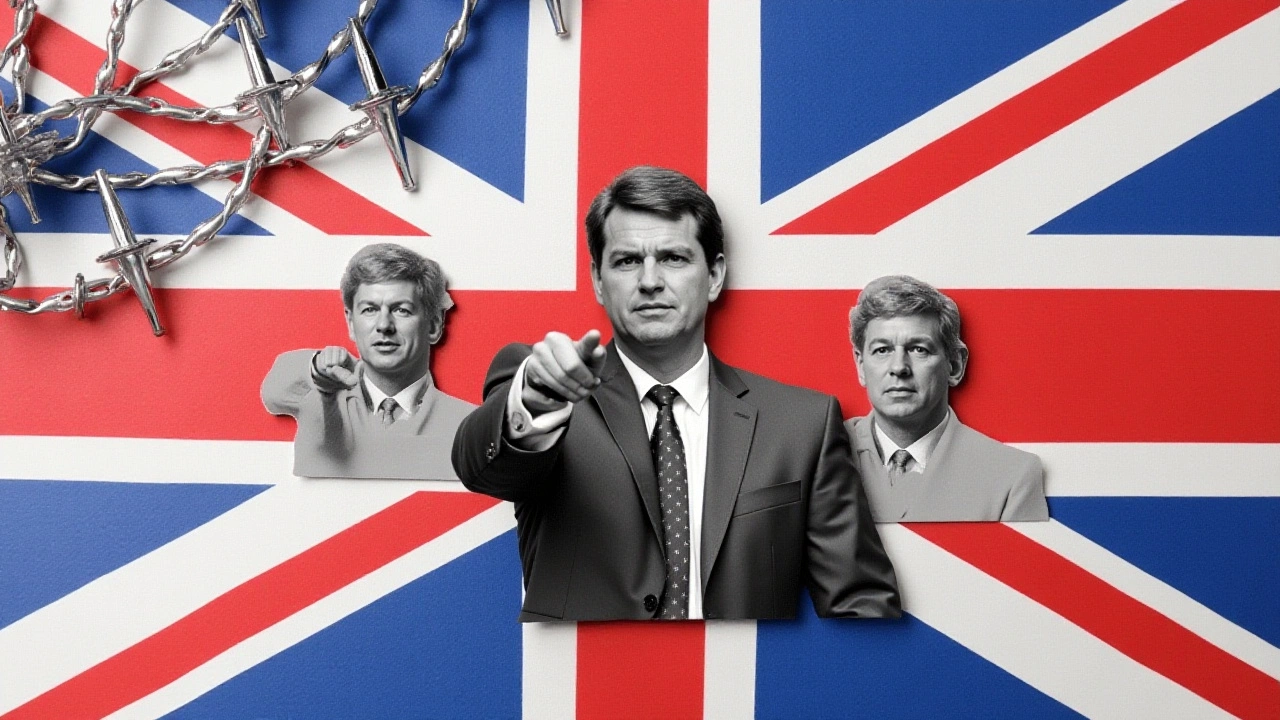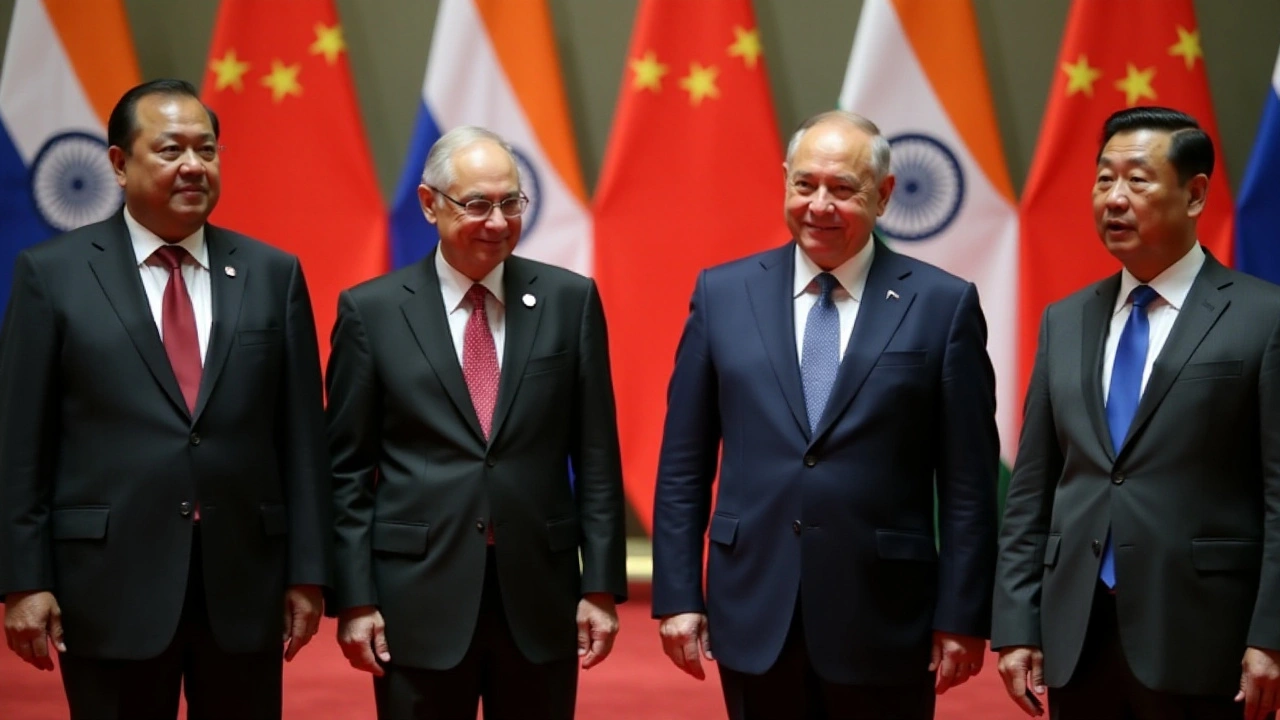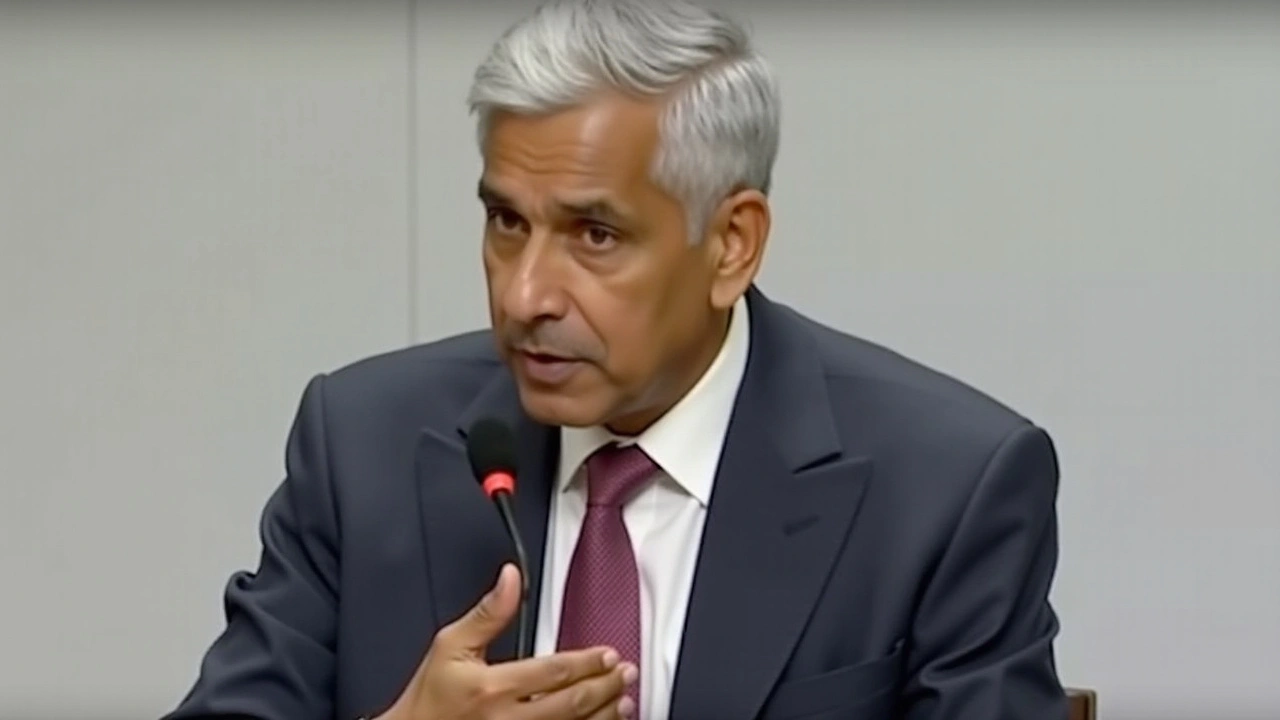BRICS Nations' Stance on the US Dollar
At the Doha Forum in Qatar on December 7, 2024, External Affairs Minister S Jaishankar made it clear that the BRICS nations—comprising Brazil, Russia, India, China, and South Africa—have no intention of undermining the US dollar. This announcement came as a response to US President-elect Donald Trump's statement threatening to impose 100% tariffs on BRICS countries should they attempt to develop a new currency to rival the dollar or endorse another currency as a replacement.
The topic of de-dollarization has been a hot button issue, particularly in the current geopolitical climate. Minister Jaishankar’s firm stance assures that India, for its part, has no plans to move away from the US dollar. The reaffirmation is especially poignant given the economic interplay and the global market's dependencies.
India's Economic Dependency and Strategic Relationship with the US
The minister underscored the significance of the US as India’s top trading partner, delineating a strategic necessity to nurture this economic relationship. This reality underscores the complexity of bilateral trade and how these interactions greatly contribute to India’s own economic engine. While the concept of diversifying currency reliance may sound plausible to some economic theorists, in practical terms, India's current focus is on stability and predictability in its international transactions.
Jaishankar also pointed out that there has been no BRICS resolution advocating for a shared currency that could threaten the dollar's dominance. Instead, the emphasis has been placed on creating resilient economic policies to safeguard national interests against unpredictable geopolitical shifts. The uncertainties of global politics necessitate such a measured approach to economics, based on an environment that is both cooperative and competitive.

The Nexus of Leadership: Modi, Trump, and Global Economic Diplomacy
Delving deeper into the human dynamics of international relations, Jaishankar highlighted the strong rapport between Prime Minister Narendra Modi and the President-elect Trump. The synergy between these two leaders has been instrumental in reinforcing the India-US relationship, even amidst occasional policy disagreements or diplomatic skirmishes. The influence of personal relationships at this level underscores how leadership dynamics can shape the international economic canvas.
This relationship, while complex, serves as a cornerstone for India’s foreign policy strategies and economic engagements. The prospects for cooperation are enriched by mutual understanding and respect between the two leaders, creating a robust framework for ongoing dialogue and collaboration. Such personal diplomatic ties are invaluable in resolving disputes and enhancing bilateral agreements over shared concerns.
Central Bank Clarifications and Economic Directions
Aligning with Jaishankar’s remarks, Reserve Bank of India Governor Shaktikanta Das addressed speculation by clarifying that India is not engaging in de-dollarization. Rather, the focus is on de-risking Indian trade from potential international disruptions—a sophisticated balancing act of currency management. The inherent risks in global financial markets warrant a cautious but innovative economic strategy tailored to India’s unique geopolitical position.
By prioritizing the reduction of trade vulnerabilities, India ensures a better cushioning against future market shocks. This forward-thinking approach to mitigating economic risk is essential for fostering stable growth. Such policies are crucial in a world where the economic fallout from conflicts can have far-reaching impacts.

BRICS Economic Cooperation and Future Outlook
The BRICS association itself is a platform for collaborative dialogue and purposeful economic cooperation, aimed to bolster growth and development among member nations. The challenges poised by potential currency substitution underscore the importance of carefully navigating international trade norms to avoid conflicts with major global economies like the United States.
Going forward, BRICS must weigh the potential benefits of currency diversification against the possible disruption of established trade flows. It’s a delicate balance of forging economic innovations while maintaining essential alliances, such as the trade relationship with the US. Engagement in constructive dialogues and maintaining diplomatic flexibility are key pillars in ensuring progress without jeopardizing longstanding economic ties.
Conclusion: Committed to Stability and Pragmatic Diplomacy
The clarifications offered by Minister Jaishankar, along with Governor Das's economic insights, articulate a strong commitment to preserving the current financial systems while pragmatically addressing modern financial challenges. In today’s interdependent world economy, the nuanced handlings of such matters are critically central to maintaining stability and fostering cooperative relations at a global scale.
India is thus poised to maintain its economic strategies that strengthen ties with existing partners while staying adaptable to future economic developments. The steadfast approach advocated by leaders like Jaishankar illuminates the pathways towards sustained economic sovereignty interwoven with international collaboration.


Mark Dodak
December 7, 2024 AT 19:28The fact that BRICS is explicitly rejecting de-dollarization despite US tariff threats says more about global economic realism than any ideological posturing. The dollar isn't just a currency-it's the plumbing of global trade. Even nations that resent US hegemony still need to buy oil, tech, and food, and those transactions run on dollars. Trying to replace it overnight would collapse supply chains faster than a house of cards in a hurricane. This isn't surrender-it's strategic patience.
Drasti Patel
December 8, 2024 AT 19:18India’s alignment with the dollar is not a choice-it is a necessity dictated by centuries of colonial economic entanglement. To pretend we are acting out of free will is delusional. Our elites cling to the dollar not because it serves us, but because it serves the West’s design. True sovereignty means rejecting the very architecture of financial colonialism, not negotiating better terms within it.
Stephanie Reed
December 9, 2024 AT 07:06I really appreciate how grounded this discussion is. It’s easy to get swept up in the drama of tariffs and rival currencies, but the reality is that stability matters more than symbolism. India’s approach-de-risking without de-dollarizing-is exactly the kind of pragmatic leadership we need right now. Hope other nations follow suit.
Jason Lo
December 10, 2024 AT 16:15Of course they’re not replacing the dollar. They’re too scared. Every single one of them still sells their goods to the US and buys weapons from it. This whole ‘BRICS unity’ narrative is just propaganda for people who think sanctions are a myth. Wake up-the dollar is the only currency that still works at scale. Stop pretending you’re revolutionary when you’re just clinging to the same system.
Brian Gallagher
December 11, 2024 AT 21:37From a macroprudential standpoint, the BRICS stance reflects an optimal equilibrium between systemic resilience and transactional efficiency. The dollar’s network effects, liquidity depth, and institutional trust create an irreducible minimum threshold for global settlement. Attempting to engineer an alternative without equivalent depth would induce endogenous volatility-precisely what de-risking seeks to avoid. The RBI’s position is not reactionary; it’s algorithmically optimal under current constraint sets.
Elizabeth Alfonso Prieto
December 12, 2024 AT 12:39so like... why are we even talking about this?? the dollar is fine. why do we have to make it a thing?? like i get it, trump is scary but like... just dont do the thing that makes him mad?? why are we all so dramatic??
Harry Adams
December 13, 2024 AT 20:44How quaint. A developing nation-India-defending the dollar as if it were a moral imperative rather than an instrument of imperial control. The entire discourse is a masterclass in ideological capitulation. One wonders if Jaishankar even reads his own economic history-or if he’s simply too well-compensated to notice the irony of praising the very system that extracted wealth from his country for two centuries.
Kieran Scott
December 14, 2024 AT 08:44Let’s be brutally honest: BRICS has zero capacity to replace the dollar. Not in 20 years, not in 50. The US Treasury market is $25 trillion deep. China’s CNY is capital controlled. Russia’s ruble is sanctions-ridden. India’s rupee isn’t even fully convertible. This isn’t strategy-it’s theater. The real goal isn’t de-dollarization; it’s extracting concessions without triggering a financial war. They’re playing chicken with the Fed and hoping the US blinks. Spoiler: it won’t.
Joshua Gucilatar
December 16, 2024 AT 05:17They didn’t just ‘reaffirm’ the dollar-they reaffirmed the invisible architecture of global power. The dollar isn’t just paper and pixels; it’s the gravitational core of a system where every trade, every loan, every commodity contract bends toward Washington. India’s move isn’t neutrality-it’s alignment with the dominant gravitational well. The irony? The very nations calling for multipolarity are the ones most dependent on its gravity. This isn’t pragmatism-it’s cosmic inertia dressed in diplomatic suits.